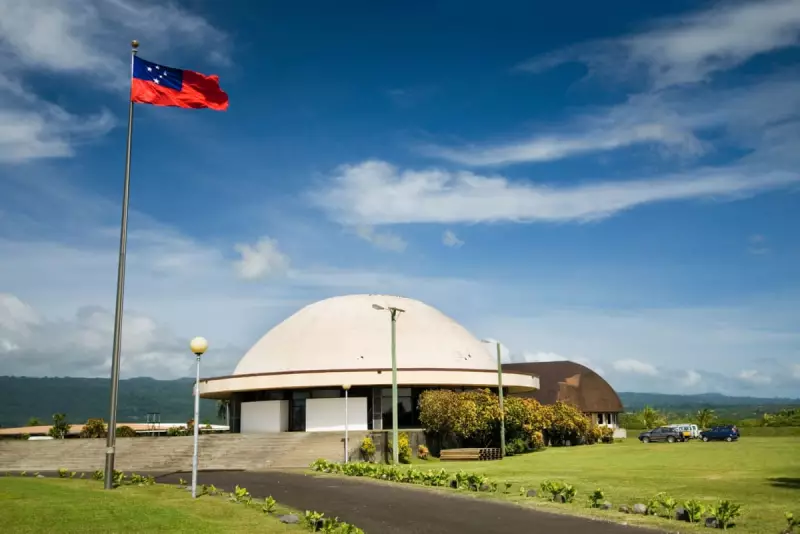
The democratic fabric of Samoa faces a significant test as the nation's sole daily newspaper has been barred from the Prime Minister's press conferences, a move that has ignited fierce criticism from political leaders and press freedom advocates across the Pacific.
A Public Ejection and an Immediate Ban
The dramatic escalation occurred on Monday when Marieta Heidi Ilalio, a journalist for the Samoa Observer, was publicly removed from the Prime Minister's weekly press conference. Later that evening, Prime Minister La'aulialemalietoa Leuatea Polataivao Fosi Schmidt formally announced the temporary ban, preventing the newspaper from attending all future briefings.
The Prime Minister justified his decision by accusing the publication of inaccurate reporting during his eight-week medical stay in New Zealand. He released a statement listing several stories he claimed were published without proper factual verification or a right of reply for those involved. La'aulialemalietoa specifically cited an editorial he believed aimed to 'create discord' during his absence and detailed an incident on 16 November where he alleged Samoa Observer staff trespassed at his private residence in a manner he described as 'rude, arrogant, and invasive'.
Widespread Condemnation and Defence of Democratic Principles
The ban has been met with immediate and strong backlash. The Samoa Observer itself responded with an editorial firmly rejecting the Prime Minister's allegations and reaffirming its commitment to independent, public-interest journalism. The paper questioned the timing of the ban, suggesting it was more about suppressing scrutiny than correcting any perceived inaccuracies.
Media organisations were quick to condemn the move. The Samoa Alliance of Media Practitioners for Development (Sampod) labelled the ban a 'disproportionate and harmful reaction'. Sampod representative Lilomaiava Maina Vai emphasised that established legal avenues and the media council process exist to address reporting concerns, stating that 'banning and targeting one newspaper is ill advised because it restricts the public’s access to information and undermines the role of the media in a democracy.'
The Pacific Freedom Forum and the Journalists Association of Samoa have also expressed deep concerns, warning that such actions weaken government accountability and could encourage further hostility towards journalists.
Political Opposition Decries 'Silencing of Scrutiny'
The political opposition has united in its criticism. Fiame Naomi Mata'afa, the former Prime Minister and current leader of the opposition Samoa Uniting Party, condemned the ban as a deliberate effort to silence scrutiny. She contrasted the current administration's approach with her own, stating that no media outlet was barred during her premiership, regardless of how critical their coverage was. 'Leadership requires openness, accountability and the ability to face difficult questions,' she asserted.
Fiame also raised alarms about the lack of transparency surrounding the Prime Minister's medical absence and a concerning rise in online hostility targeting the Samoa Observer, which she said risked normalising intimidation.
Echoing this sentiment, Tuilaepa Aiono Sailele Malielegaoi, another former Prime Minister and opposition leader, offered a simple rebuttal: 'This is bad. If you think the information [in an article] is wrong, you will not get sick from it, it is an opportunity to correct it and to expand on the information.'
For journalist Marieta Ilalio, the experience was deeply personal and professional. She said she was taken aback by the public directive to leave. 'I have never been asked to leave a press conference before, and for it to be done like that, I had no choice but to stand up and walk away,' she recounted. 'It made me sad to see how my role as a journalist was undermined at that point.'
This controversy has sparked a vital national conversation about transparency, leadership accountability, and media independence in Samoa, with the world watching how this Pacific nation navigates this challenge to its democratic principles.





